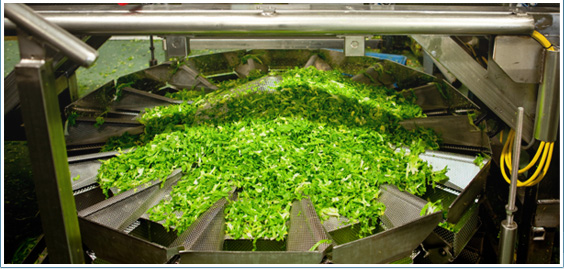Michael R. Taylor, J.D.
N Engl J Med 2011; 365:e1
Large-scale outbreaks of foodborne illness have recently focused attention on the ability of the U.S. food-safety system to protect the public health. The nationwide outbreak of Salmonella enterica serotype Typhimurium infection associated with peanut products that is described by Cavallero et al. is one example.1 This contamination, which was ultimately traced to the Peanut Corporation of America (PCA), took a high toll — 714 people were affected, about 200 were hospitalized, and 9 died. Investigators found multiple potential routes of contamination at PCA facilities, such as rain leakage and cross-contamination between raw and roasted peanuts. Although the outbreak was eventually contained, key parts of the food-safety system clearly failed.
There is a public health imperative to do better. The burden of foodborne illness is substantial: about 1 in 6 people in the United States get sick each year, 128,000 are hospitalized, and about 3000 die. We know that foodborne illness is not just a mild annoyance — it can lead to lifelong chronic diseases, such as arthritis and renal failure, and can cause death. Moreover, outbreaks can reduce consumers’ confidence in the food supply and cause major economic disruptions for the food system.
Ensuring food safety is a difficult job. A global marketplace provides a diverse array of food products. Many processed foods are manufactured through complex technology. New strains of Escherichia coli are emerging — such as the O104:H4 strain in the recent German outbreak2 — and we’re seeing unexpected pathogens in some food items, such as salmonella in nuts. Given our complex food-distribution channels, it’s not easy to trace contaminated products to their source rapidly.
The challenge is great, but we believe we have a historic opportunity to reduce foodborne illness under the new Food Safety Modernization Act (FSMA). Enacted on January 4, 2011, the FSMA gives the Food and Drug Administration (FDA) a modern mandate and toolkit to improve the safety of the country’s food supply.
Most fundamentally, the law clarifies that people and businesses that provide food to the public, whether they produce, process, transport, or sell food, are responsible for taking the steps necessary to ensure that they’ve identified and controlled hazards that could make food unsafe. Though most companies take proper precautions, it takes only one uncontrolled situation to cause an outbreak. The FDA’s core job under the FSMA is to set modern prevention-oriented standards and ensure high rates of compliance. Consumers have a responsibility to ensure food safety by properly handling, preparing, and storing food, but they should not be responsible for correcting mistakes that were made earlier in the farm-to-table chain.
The FSMA shifts our food-safety focus from reaction and response to prevention, so that prudent preventive measures will be systematically built into all parts of the food system. The law directs the FDA to issue a rule requiring comprehensive preventive controls for most facilities. In the future, each facility will have to produce a written analysis identifying the hazards associated with the foods it handles and the processes used to manufacture them. The required documentation will describe the controls the facility has implemented to prevent the identified hazards, including a plan for monitoring the controls and correcting problems when failures occur.
Preventive controls are not new in the food industry; many companies already employ them, and the FDA already requires them for foods such as juices, seafood, and shell eggs. But Congress has given the FDA an explicit mandate to use the tool more broadly. Details of the new requirements under the FSMA will be developed through the rulemaking process, and the public will have the opportunity to provide input (more information can be found at www.fda.gov/fsma).
The new law has provisions to help ensure that food from abroad is as safe as food produced domestically. Our food supply is global, with 15% coming from other countries, and the percentage is higher for certain commodities: 75% of our seafood, 20% of our vegetables, and 50% of our fruit is imported. The FSMA mandates a new safety system that makes importers accountable for verifying that the required controls are in place in foreign food facilities that export products to the United States. The FDA will continue to conduct electronic risk-based screening of all food shipments before they arrive in the country and conduct further analyses at the port of entry when warranted. But the requirement that importers perform verification activities will boost our assurance that imported food is safe.
The FSMA also provides the FDA with new inspection and enforcement tools to ensure that companies are carrying out their responsibilities and to keep contaminated products from reaching the marketplace. With the help of its state partners and others, the FDA will conduct more frequent and targeted inspections that will include verification that facilities are properly implementing preventive controls. We will have access to facilities’ food-safety plans and the records they will be required to keep to document their implementation. With the FSMA’s broad prevention framework, we will be able to develop new inspection approaches that better target facilities and products on the basis of risk. When a company fails to voluntarily recall unsafe food, the FDA has new authority to issue a mandatory recall. The law also gives the FDA more authority to prevent the release into the marketplace of adulterated or misbranded food, including potentially harmful food. In addition, if a food producer in another country does not permit the FDA to inspect its facility, the agency can refuse to allow food from that facility into the United States.
The FSMA also gives the Centers for Disease Control and Prevention new responsibilities to enhance federal, state, and local surveillance systems for foodborne illness so that we can identify and control outbreaks more quickly while gaining the scientific knowledge to prevent future ones. The FSMA implicitly recognizes the importance of good data to drive evidence-based interventions that could reduce illnesses. State and local health departments are responsible for a large proportion of these activities, and we must provide them with resources to do their job with modern methods.
Finally, we have a mandate from Congress to work more closely with our government partners at the federal, state, local, territorial, and tribal level. Our goal is to establish an integrated, nationwide food-safety system with harmonized inspections, requirements, surveillance methods, and training. The FSMA also includes similar directives to work with and help build the capacity of our counterparts in other countries.
The law calls for a new food-safety system — one that makes better use of public and private resources to prevent food-safety problems. Implementation will take time. Some provisions are already in place, but many others require rulemaking, which will ensure that we get input from all our stakeholders and that the regulations we issue are well thought out and practical for the diverse businesses that will be affected.
Implementation also requires investment in the science that can illuminate hazards and ways of preventing them, retraining of FDA field staff in new inspection methods, capacity building that enables us to leverage state resources, and the construction of a new import-safety system that meets the challenges of our globalized food supply.
The FSMA represents an opportunity to build a system that can prevent many outbreaks of foodborne illness and reduce the public health impact of those that do occur. We expect to better meet high consumer expectations and enhance the food system’s economic viability. We will be working with stakeholders, with Congress, and with the administration to ensure that the FDA has the necessary resources to implement this landmark legislation.
Disclosure forms provided by the author are available with the full text of this article at NEJM.org.
This article (10.1056/NEJMp1109388) was published on August 17, 2011, at NEJM.org.
Source Information
From the Office of the Deputy Commissioner for Foods, Food and Drug Administration, Silver Spring, MD
Advanced Traceability Solutions is an industry leader in food safety technology, especially traceability technology.




